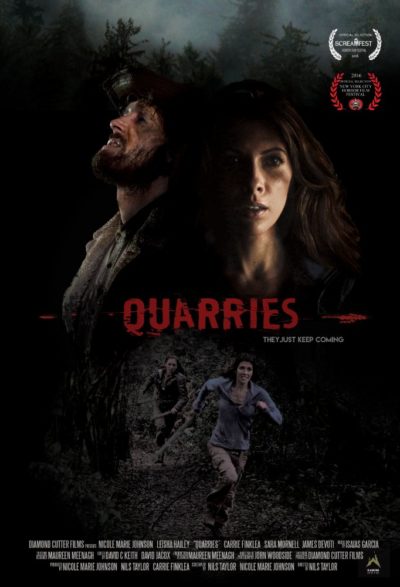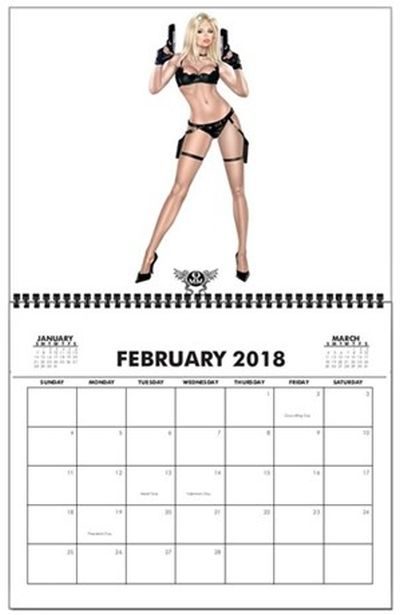★★★
“Two tentacles up! Well, one tentacle, at least.”
 The mad scientist has been a staple of horror/SF for almost 200 years, since Victor Frankenstein first cranked up his machine. The worlds of literature and cinema have frequently returned to it since. A survey showed mad scientists or their creations to be the threat in 30% of horror films over a fifty-year period, and examples from one or other, include Dr. Moreau, Dr. Jekyll, Herbert West, and Rotwang in Metropolis. But they have been almost exclusively male: after Frankenstein, it was 75 years before any comparable female character existed, the title character in George Griffith’s Olga Romanoff, from 1893. They have been rare ever since, with only the occasional entry such as Lady Frankenstein to break male domination.
The mad scientist has been a staple of horror/SF for almost 200 years, since Victor Frankenstein first cranked up his machine. The worlds of literature and cinema have frequently returned to it since. A survey showed mad scientists or their creations to be the threat in 30% of horror films over a fifty-year period, and examples from one or other, include Dr. Moreau, Dr. Jekyll, Herbert West, and Rotwang in Metropolis. But they have been almost exclusively male: after Frankenstein, it was 75 years before any comparable female character existed, the title character in George Griffith’s Olga Romanoff, from 1893. They have been rare ever since, with only the occasional entry such as Lady Frankenstein to break male domination.
This is another rare example, and what makes this movie particularly unusual, is the Lovecraftian overtones. While not based specifically on any of the works of H.P. Lovecraft, it is certainly set in the Cthulhu Mythos where his stories took place. Indeed, at one point, heroine Dr. Olive Crown (Dawson) hangs up her credentials from “Miskatonic University”, the fictional establishment often referenced by Lovecraft. Yet Lovecraft wrote almost exclusively about men, to the point where female characters are notable by their absence. Here though, it’s likely necessary, due to the maternal aspect of the storyline.
Dr. Crown is part of a deep-sea expedition, testing out a new underwater suit. A dive goes badly wrong, with Olive barely surviving, and being blamed for the accident, though she remembers very little of what happened. When checking the suit, she discovers an egg-like sac. Having already been fired, she smuggles it off the boat, and back to the basement of the house she shares with her boyfriend (Thrace). It hatches, and the creature begins a growing relationship with Olive, that’s part-psychic, part-mental and almost all creepy. Especially after she discovers that human blood is about the only thing it will consume. Fortunately, there are no shortage of potential snacks to hand, including her former boss and her adulterous sister (Longden).
If you were to describe this as a cross between The Thing and Hellraiser, you’d not be far off. There’s the creepy, tenticular monster of the former, as well as a soundtrack which is so close to John Carpenter’s electronic minimalism as to invite a lawsuit. Meanwhile, you have the lurking horror behind suburban walls from the Clive Barker adaptation, with a seemingly nice young woman luring victims in, to feed her monster pal. Onto this combination, the film piles common Lovecraftian themes of growing insanity, against a backdrop of the “Old Gods” – once the object of cult devotion, these entities have not been destroyed, and are merely sleeping, waiting for their time to come again.
There are certainly a couple of mis-steps on the way, not least some horrendous CGI which is not needed at all – a painfully artificial shot of a ship sailing could easily have been skipped, and takes the viewer out of the mood entirely. The ending, similarly, goes at least one step (if not several) further than it needs to: this is one of those times when leaving things to the audience to fill in the blanks would have been a better bet. But the monster, in its various stages of growth, is impressively realized, especially given the obvious limitations of resources here. If falling short of the movies which it most closely imitates, those are some large, black boots to fill, and there’s enough here of merit to provide a creepily decent pay-off for the viewer.
Dir: Stewart Sparke
Star: Anna Dawson, Daniel Thrace, Michaela Longden, Johnny Vivash






 I guess there is at least something logical about this, in how its heroine, Maggie Lee, becomes the assassin of the title. She takes on her first contract to pay the medical bills of her niece, left in a coma after a car accident which killed her parents and injured Maggie. That’s the kind of motivation which I can see, causing a person to take desperate steps. Unfortunately, it’s a rare island in a sea of largely implausible plotting and uninteresting characters.
I guess there is at least something logical about this, in how its heroine, Maggie Lee, becomes the assassin of the title. She takes on her first contract to pay the medical bills of her niece, left in a coma after a car accident which killed her parents and injured Maggie. That’s the kind of motivation which I can see, causing a person to take desperate steps. Unfortunately, it’s a rare island in a sea of largely implausible plotting and uninteresting characters. It’s not often a film manages to be under-written AND over-written. Yet this tale of wilderness survival does both. A group of women are out on what’s supposed to be an empowering hike through the forest, designed to boost self-reliance, esteem and all that good stuff. But they come under attack from a group of local men, apparently intent on a hunting expedition, with the woman as the prey. They’ll need to learn survival skills, that’s for sure.
It’s not often a film manages to be under-written AND over-written. Yet this tale of wilderness survival does both. A group of women are out on what’s supposed to be an empowering hike through the forest, designed to boost self-reliance, esteem and all that good stuff. But they come under attack from a group of local men, apparently intent on a hunting expedition, with the woman as the prey. They’ll need to learn survival skills, that’s for sure.










 When I told Chris the title of this one, I swear you could hear her eyes rolling at the mere thought of it. But by the end, even she had to admit to having been won over by its dark charms. Most obviously is the sense of black humour which isn’t just dry, it’s as arid as the Atacama Desert. Morgan (Jungermann) and Jean (Carr) are fascinated by female serial killers, running a podcast on the topic which has acquired its own, unique fanbase. Morgan falls for Simone (Vand), a colleague at the food co-operative where she works. But Jean – who is also Morgan’s ex – can’t help thinking there is something seriously off with Simone.
When I told Chris the title of this one, I swear you could hear her eyes rolling at the mere thought of it. But by the end, even she had to admit to having been won over by its dark charms. Most obviously is the sense of black humour which isn’t just dry, it’s as arid as the Atacama Desert. Morgan (Jungermann) and Jean (Carr) are fascinated by female serial killers, running a podcast on the topic which has acquired its own, unique fanbase. Morgan falls for Simone (Vand), a colleague at the food co-operative where she works. But Jean – who is also Morgan’s ex – can’t help thinking there is something seriously off with Simone. Actually, if only this
Actually, if only this  This opens with a blistering seven minutes of action which starts off in first-person perspective, looking like the most deranged video game ever, as the protagonist slices, dices and shoots their way through a building to a confrontation with the final boss. After being slammed head-first into a mirror, the point of view changes and we see the attacker is a young woman, Sook-hee (Kim Ok-bin). Finishing her slaughter, she calmly accepts arrest, but the Korean intelligence services recruit her, hoping to channel her skills to their own ends, after a spot of plastic surgery to ensure a fresh start. When training is completed, under Chief Kwon (Kim Seo-hyung), she’s given an apartment, unaware that the man next door, Jung Hyun-soo (Sung), is actually her handler. However, he’s not the only person with something to hide. Because Sook-hee is out to leverage her new position, and is still after long-awaited revenge on the man who killed her father.
This opens with a blistering seven minutes of action which starts off in first-person perspective, looking like the most deranged video game ever, as the protagonist slices, dices and shoots their way through a building to a confrontation with the final boss. After being slammed head-first into a mirror, the point of view changes and we see the attacker is a young woman, Sook-hee (Kim Ok-bin). Finishing her slaughter, she calmly accepts arrest, but the Korean intelligence services recruit her, hoping to channel her skills to their own ends, after a spot of plastic surgery to ensure a fresh start. When training is completed, under Chief Kwon (Kim Seo-hyung), she’s given an apartment, unaware that the man next door, Jung Hyun-soo (Sung), is actually her handler. However, he’s not the only person with something to hide. Because Sook-hee is out to leverage her new position, and is still after long-awaited revenge on the man who killed her father.